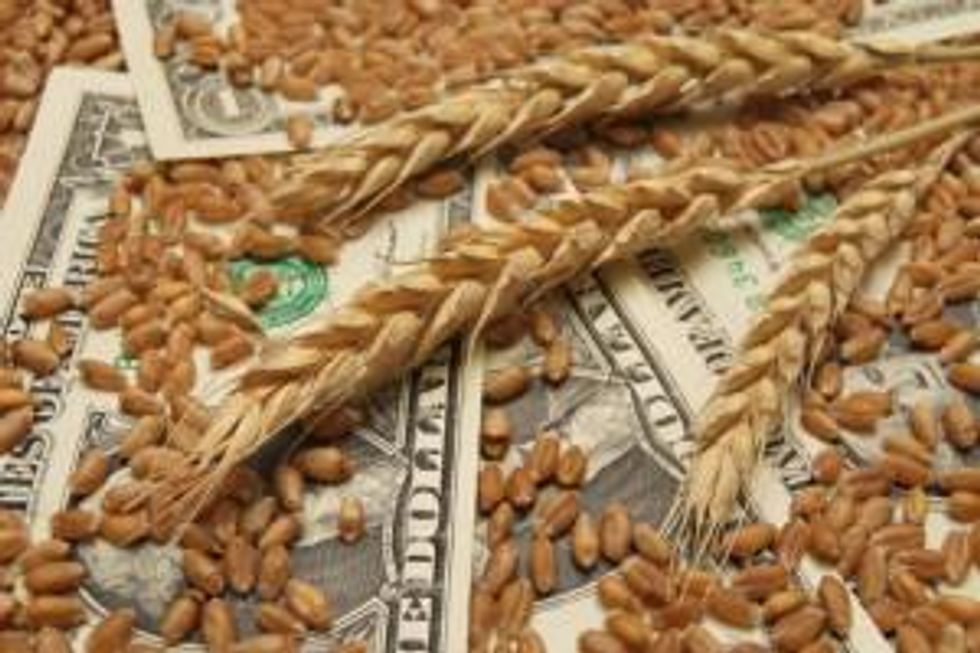As food prices hover near record highs, consumers (and investors) are preparing for the end of cheap food. To get you involved, we present an introduction to soft commodity investing.
By James Wellstead – Exclusive to Resource Investing News
Increasing global wealth, booming world population and turbulent weather have pushed global food prices to historic highs. As a result, agricultural (or “soft”) commodities are now on the radar of investors worldwide as consumers are peparing for an era in which cheap food may no longer be a reality.
With global food crises dominating headlines in recent years investors, governments and international governance agencies are coming to grips with an international priority.
As one of the most inelastic commodities in a country’s basket of goods, food availability and prices can play a dramatic role in national and international politics. Sharp spikes in global food prices were a large catalyst in initiating riots in Tunisia, Egypt, Yemen and Libya which became known as the Arab Spring.
At the heart of the global food crisis is a wave of rising global food prices which hit peaks in 2008-09 and again in 2011. It appears as though we entered an era of sustained high global food prices, as numerous analysts have suggested that the “era of cheap food may be over.”
A new report out of the Global Development and Environment Institute at Tufts University highlighted that “[a]s world population grows, meat consumption increases the demand for feed, and industrial biofuel production expands, there is concern that demand will outstrip supply by 2050 unless concerted action is taken to address the underlying problems.”
Global investment in agriculture can play a significant role in mediating the contracting space between global food supply and demand, while also acting as an investment vehicle to realize returns.
Soft commodities
Depending on the specific definition, soft commodities are classified as those which are grown. The category predominantly includes coffee, sugar, cocoa and fruit, as well as grains such as wheat, soybeans and corn and cotton and livestock.
While each soft commodity is impacted by individual events and market dynamics, the production of these commodities differ in that they have specific planting and harvest seasons and are capable of modifying production schedules through selective planting and harvesting practices.
Beyond these general features, soft commodities are impacted by the following four factors:
Global population growth – With an estimated 2.2 billion additional mouths to feed over the next 40 years, the demand for food is increasing
Socio-economic demographic shifts – As emerging markets begin to access greater wealth, food consumption is becoming increasingly resource intensive with meat, sugar and higher grade grains becoming increasingly popular in the fast-moving emerging economies of Brazil, India, Russia and China (BRIC). As a result, wealthier people are demanding more food as well as foods higher in material inputs.
Technology innovations – New farming equipment, scientific agricultural techniques and fertilizer applications have done much to ramp up agricultural production. However, competing innovations in biofuels have also pushed a number of food crops toward industrial uses, which squeeze existing crop land traditionally used for food production.
Weather events – Weather is one of the most unpredictable influences on soft commodity markets. With flooding, drought and unseasonable heat and cold variously inflicting itself upon crops across the world in 2010 and 2011, weather has to be a close concern for those focused on agricultural market dynamics.
Later this week we will take a closer look at how soft commodities performed in 2011 and their outlook for 2012. Investors will also be keen to learn how to gain exposure to soft commodities and the investment options available.
Securities Disclosure: I, James Wellstead, hold no direct investment interest in any company mentioned in this article.
